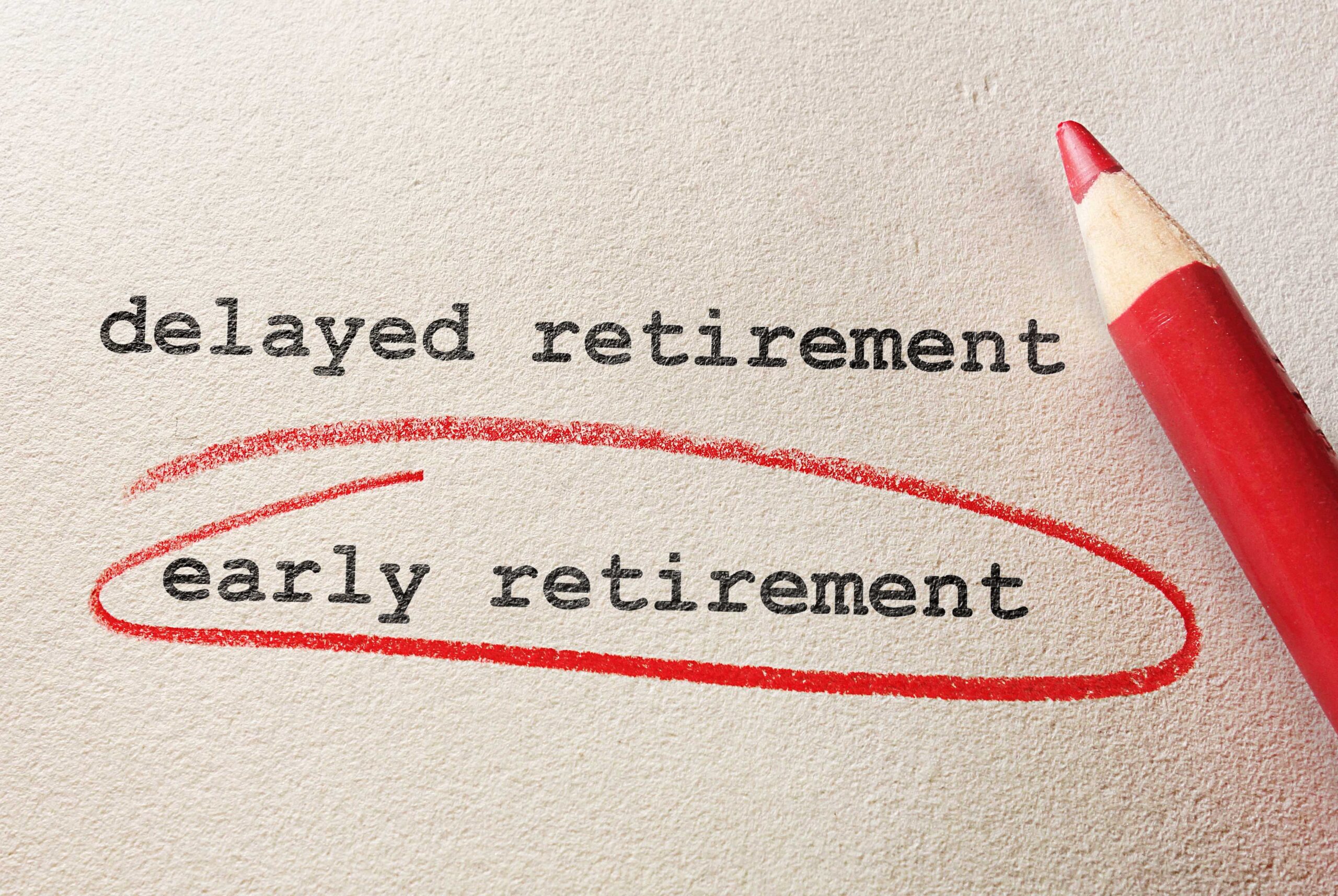
When we speak to clients about their hopes for the future, taking early retirement, to enjoy travel or pursue hobbies, is often high on their list of goals. Whether this is possible or not depends on a range of factors; however, starting to formulate plans for retirement well in advance can help improve the prospects of retiring early and enjoying a comfortable retirement.
When can I retire?
Unless you hold assets that can provide an income or regular capital sum – such as property or investments – that can enable early retirement, most people will need to wait until pension provision is accessible before considering retirement. The earliest point at which you can access personal, or workplace pensions is currently age 55, although this will rise to age 57 from April 2028; however, affordability constraints mean that this age is often too early for most to consider. According to Office for National Statistics (ONS) data published in 2021, just over 3.5% of the population opt to retire at the earliest current pension age of 55.
For those that hold a Final Salary or Defined Benefit pension, each pension scheme will have rules as to when the pension benefits can be taken. Often this is set at age 65, although others may offer access at 60. Taking benefits earlier than the normal retirement date for the scheme will usually lead to a reduction in benefits for each year the pension is taken early – typically this will be a reduction of around 5% per annum, which may be sufficient penalty to dissuade pension holders from accessing pensions early.
What standard of living do I want?
Early retirement is entirely possible for many individuals, although this depends on your expectations in later life, as personal pension funds and other savings will normally be needed to bridge the gap between the point of retirement and when state pension provision begins, and then continue to support lifestyles in later life.
A good starting point is to consider the amount of income you will need during retirement, in today’s money, to begin to assess the feasibility of early retirement. All regular outgoings and costs need to be considered, such as household bills, groceries, transport costs and any outstanding loan or mortgage that needs to be repaid. On top of essential spending, holidays and travel expenditure, hobbies, leisure, and home improvements need to be accounted for, together with the cost of replacing vehicles and household items over time.
It is also important to think about the impact of increases in the cost of living. The last few years has seen the cost of gas, electricity, food, and other essentials rise faster than the headline rate of inflation. Not considering the eroding impact of rising prices could lead to a shortfall of income in later life if pension funds are accessed too early.
Increasing life expectancy
Life expectancy in the UK continues to increase. According to the ONS, a woman aged 50 now is expected to live until an average of 87 years and has a one in four chance of living to 95, while a man aged 50 has a mean life expectancy of 34 years. Along with increasing life expectancy, medical advances may enable people to stay healthier and active for longer, and as a result pensions and other sources of retirement income will need to potentially fund lifestyle choices for an increasing number of years. These factors underline the need for forward planning to ensure retirement is comfortable.
Is the state pension enough?
State pension provision will form a useful part of most people’s retirement plans; however, state pension alone is unlikely to provide a comfortable retirement. The current state pension payable to anyone with 35 or more qualifying years of National Insurance contributions is £230.25 per week, or £11,973 per annum.
Legislative changes over recent years has pushed back the age at which the state pension becomes payable. In 2018, the state pension age for men and women was set at 65; however, the state pension age has increased to 66 for anyone born between 6th December 1953 and 5th April 1960, 67 for anyone born between 6th March 1961 and 5th April 1977, and 68 for anyone born after 6th April 1978. As a result, those looking to retire early may need to rely solely on pension savings for longer.
The Retirement Living Standards report concluded that a couple looking to enjoy a moderate standard of living in retirement will need to aim to receive income of around £43,900 per annum, which far exceeds the £23,946 per annum that a couple who both receive the full state pension would enjoy. It is, therefore, crucial to begin to make your own provision for retirement to make life more comfortable.
Start planning ahead
As you start to consider your future, and how retirement may look for you, engaging with an independent financial planner at an early stage can help lay the foundations for a comfortable retirement, and consider whether retiring early really is possible.
At FAS, we understand that every individual’s circumstances are unique, and we take the time to fully understand your expectations, needs, and goals in retirement. Our experienced advisers can review existing personal pension arrangements, to ensure that they are appropriate, and analyse pension investments with the aim of improving investment performance. We can also undertake cash flow analysis, to consider the level of pension savings that need to be made to achieve your goals.
By adopting a holistic approach, we can look at wider financial circumstances, such as investments, savings, and property income, to build a comprehensive retirement plan. We can also provide a projection of the likely income you could enjoy in retirement and whether you could afford to retire early. Speak to one of our experienced advisers to discuss your existing pension arrangements and begin planning for later life.





